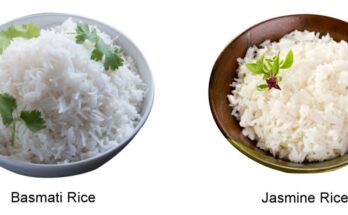There are many myths about carbohydrates: if they are good or if they are harmful to be healthy and strong, but the reality is that they are essential in a healthy diet since their primary function is to provide energy in the form of glucose. Find out in this article everything you need to know about this source of nutrients.
The carbohydrate (or carbs) are nutrients necessary for health. Along with proteins, vitamins, minerals, fats, and water, they provide more than sixty nutrients that people need every day to be healthy.
But not all carbohydrates are created equal. For example, a diet based on simple carbohydrates (or sugars) can cause nutritional deficiencies and lead to obesity.
Excess simple carbohydrates provide energy quickly, but it depletes quickly. Thus, they make you want to eat, for example, sweets, over and over again. A vicious circle occurs: we eat carbohydrates to eat more carbohydrates, and this is the origin of obesity.
On the other hand, people who follow a high- carbohydrate, low-fat eating plan are at increased risk of premature mortality.
Six carbohydrate foods that provide benefits:
When people think of carbohydrates, the first thing that comes to mind is flour: pasta, bread, pizza, cookies, bills, cakes, and other delicacies. But also in this food group are healthy ones such as rice, potatoes, corn, sweet potatoes, as well as the less healthy ones such as soft drinks and sweets, among many others.
There is another group of carbohydrates that stand out for their benefits for having a healthy life. They are:
Barley:

its nutrients are essential for its antispasmodic, astringent, digestive, and anti-fever properties.
Quinoa:

Quinoa has a high nutritional content and is a great gluten-free alternative to cereals. These seeds contain twice as much protein as rice and barley and are an excellent source of calcium and magnesium. Besides, they have proper levels of several of the vitamins B and E, and fiber.
Legumes:

Peas, lentils, chickpeas, beans, among others, are rich in protein and B vitamins, essential for a healthy diet. Also, they are low in calories and rich in fiber. The properties of legumes improve heart health, blood pressure, lower cholesterol, and strengthen the immune and nervous system.
Oatmeal:

It provides linoleic acid, vitamins E and group B, and soluble fiber, especially if consumed raw, as in muesli (a combination of cereals and fruits, ideal for a healthy breakfast to start the day).
Fruits:

They are rich in vitamins, minerals, fibers, simple sugars, and have a high percentage of water. They are considered antioxidants and anticancer. For athletes, banana and fig are vital before starting physical activity.
The dietary guidelines advise that carbs contribute 45 to 65 percent of your everyday calorie intake. So if you eat a 2000 calorie diet, you should endeavor for about 225g to 325g of carbs every day. In the case of losing weight, you will get enormously fast results consuming about 50 to 150g of carbs.
There are many people who, when they think about dieting or eating a healthy diet, eliminate carbohydrates completely, but keep in mind that they are essential for good health. The key is to choose the right group, the healthy one.


